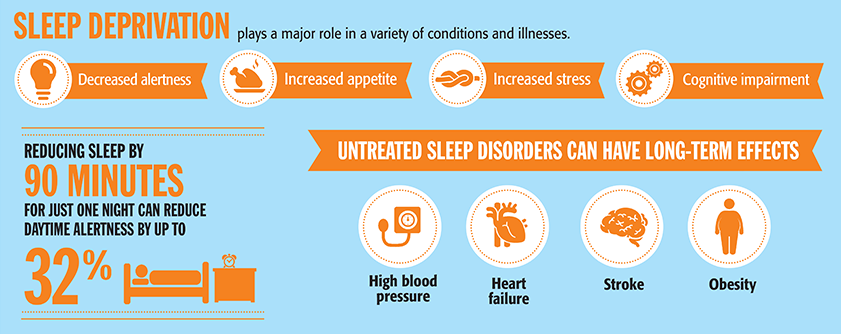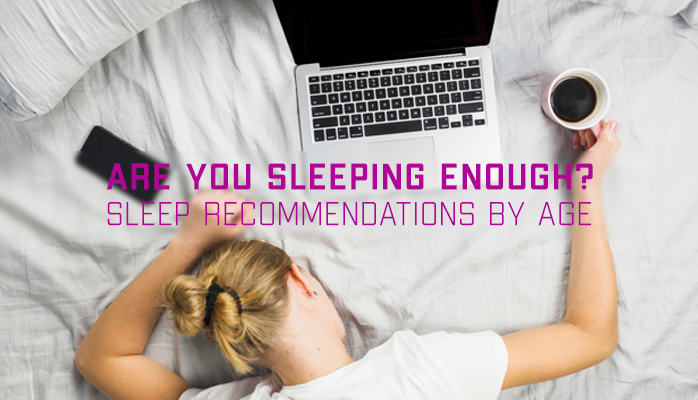Sleep and Age
Your sleep needs are largely moderated by single factor: your age. Your age dictates how much sleep you need, and it will likely also dictate your sleep cycle (circadian rhythm). These are both important points in the “how much sleep do you need” discussion, as you can lose sleep because:
- You are not sleeping long enough during the night
- You are not sleeping in sync with your circadian rhythm
Additionally, you are a unique person. Your life is unique. And so your sleep needs are unique to your life as well. Do you have kids? Do you work irregular or overnight shifts? There are life factors that also need to be taken into account when evaluating whether or not you are sleeping enough.
Let’s look at sleep for children, sleep for adults, and how sleep changes as you age.
How Much Sleep Do Adults Need
Adults should be getting between 7-9 hours of sleep every night. These figures are extensively researched and you should be dubious when someone says that they can do fine with 5 hours of sleep. The focus of sleep should not be how much do I need to survive, but instead your focus should be how much do I need to thrive.
Thriving is the target of sleep. Lack of sleep leads to lower quality of life, lower life expectancy, many medical conditions (such as heart disease and depression), and a less-performant version of yourself.
It’s also important to keep in mind that your sleep pattern changes as you age. It generally changes as:
- Likely go to sleep earlier
- Likely wake up earlier
- More trouble staying asleep at night
- Less “fulfilling sleep” (as you age, you spend less time in deep REM sleep [Sleep Association])
- More frequent naps
It’s extremely important to note one thing: sleep patterns change but the need for getting enough sleep does not change. What’s important about this is that you should listen to your body and try and find a pattern of sleep that allows you to feel rested and thriving.
How Much Sleep Do Children Need?
Children need more sleep than adults. The younger the child, the more sleep they need. This sleep is acquired through sleeping longer through the night than adults, with supplemental naps in many cases. If you have children, then you know the story.
Below are minimum, maximum, and “sweet spot” amount of sleep that is recommended for children [Sleep Foundation].
- Age 0-4 months
- Recommended 14-17 hours per day
- Not less than 11 hours
- Not more than 19 hours
- Age 4-12 months
- Recommended 12-15 hours
- Not less than 10 hours
- Not more than 18 hours
- Age 1-3 years
- Recommended 11-14 hours
- Not less than 9 hours
- Not more than 16 hours
- Age 3-5 years
- Recommended 10-12 hours
- Not less than 8 hours
- Not more than 14 hours
- Age 6-13 years
- Recommended 9-11 hours
- Not less than 7 hours
- Not more than 12 hours
- Age 13-18 years
- Recommended 8-10 hours
- Not less than 7 hours
- Not more than 11 hours
All children are different and have unique needs, and figuring out what amount of sleep allows your child to perform best is a good idea.
Signs of Sleep Deprivation in Children

Children will show signs of sleep deprivation when they aren’t getting enough sleep. We are all familiar with terms like the “witching hour” when our children get sleepy. The defiant, crabby, and hyperactive behaviors that are characteristic of the witching hour are also remarkably the same signs children chronically show when they are suffering from sleep deprivation.
These signs of sleep deprivation in children include:
- Behavior that is consistent with ADHD signs
- Hyperactivity
- Difficulty concentrating
- Defiant behavior
- Impulsive behavior
- Excessive sleep on weekends
- Falling asleep during the day, such as at school
- Poor or erratic performance at school
- Hard time waking up in the morning
In fact, there is an increasing body of evidence from studies that children with chronic sleep problems can be misdiagnosed with ADHD.
There are several lifestyle reasons your child may be sleep deprived:
- Erratic sleep schedule
- No bedtime routine
- Too much screen time
- Not enough exercise
- Room that is too loud, bright, or full of distractions during the night
Sleep Disorder Causes of Sleep Deprivation in Children and Adults
Besides lifestyle factors, sleep disorders can lead to sleep deprivation in children and adults. The most common sleep disorders are:
- Sleep apnea
- Insomnia
- Circadian rhythm disorders
- Restless leg syndrome (more common in older people)
- Night terrors (more common in children)
If you live in Alaska and you or your child seems to be suffering from sleep deprivation and is not getting much screen time, please access this free online sleep test to get in touch with us.


